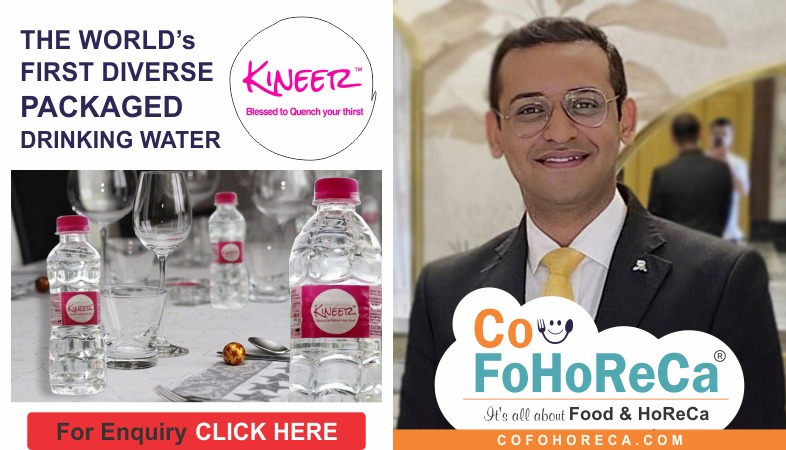The Impact of Social Media on Hotel Branding: Creating Engaging Digital Content
With the right strategies in place, social media can be a game-changer in driving bookings and enhancing a hotel’s reputation in the competitive hospitality market.
In the age of digital connectivity, social media has
transformed the way businesses interact with their audiences, and the
hospitality industry is no exception. In today’s competitive landscape,
creating engaging digital content is essential for hotels to distinguish
themselves and build a strong, memorable brand presence online. Social media
has not only become a promotional tool but also a vital part of a hotel’s
overall branding strategy.
The first significant impact of social media on hotel branding is the ability to reach a global audience instantly. Traditional marketing methods, such as print ads or TV commercials, require significant time and financial investment. This direct access to millions of potential customers opens up new avenues for hotels to showcase their unique offerings, whether it’s an exclusive suite, a stunning view, or a gourmet restaurant. Social media platforms allow hotels to tell their brand story in an interactive and authentic way, reaching customers on a personal level that traditional methods cannot replicate.
Creating compelling digital content is central to the success of any social media campaign. Hotel branding today is not just about showcasing luxury amenities or picturesque views; it’s about telling a story that resonates with the target audience. High-quality images, videos, and behind-the-scenes content allow hotels to highlight what makes them unique. For instance, posting a beautifully shot video of a sunrise from the hotel rooftop or sharing customer testimonials can invoke emotions, drawing potential guests into the experience. Additionally, hotels can leverage user-generated content by encouraging guests to share their own experiences on social media. This kind of content adds authenticity to the brand, showcasing real-life experiences that prospective guests can relate to.
Another powerful tool in creating engaging content is the use of influencers and partnerships. Social media influencers, particularly those in the travel, lifestyle, and hospitality sectors, have the ability to reach a highly targeted audience. By collaborating with influencers, hotels can access new customer bases and build trust with their followers. Influencers can provide genuine reviews, promote special offers, and share exclusive behind-the-scenes experiences, all of which help to enhance the hotel’s branding efforts. Moreover, these partnerships often lead to increased engagement, as influencers’ followers tend to actively interact with their posts, further promoting the hotel’s visibility.
The integration of storytelling into hotel branding is an important trend that has been amplified by social media. Rather than simply listing the amenities and features of a property, hotels are now crafting narratives that focus on the experiences guests can expect. Whether it’s the sense of relaxation guests feel after a day at the spa or the adventure of exploring nearby attractions, social media platforms provide a space for hotels to weave these stories into their content. Through clever captions, themed posts, and series-style content, hotels can cultivate an emotional connection with their audience, encouraging them to imagine themselves at the property. This personalized approach creates a deeper bond with potential guests and makes the hotel stand out in a crowded market.
Real-time engagement is another significant advantage that social media offers in hotel branding. Social media platforms allow hotels to connect with guests and potential customers instantly. Engaging with guests online fosters a sense of community and loyalty, which is essential in today’s competitive hotel industry. Furthermore, responding to guest feedback, whether positive or negative, showcases the hotel’s commitment to customer satisfaction and helps build a strong, trustworthy brand image.
Social media also provides valuable data and insights into customer preferences, behaviors, and trends. Through metrics such as likes, shares, comments, and click-through rates, hotels can gauge the effectiveness of their content and refine their digital strategies accordingly. This data-driven approach allows hotels to tailor their branding efforts to better meet the expectations of their target audience. For example, if a hotel notices that posts showcasing local experiences or events are generating more engagement, it can shift its content strategy to focus more on these elements, further strengthening its brand identity.
Live broadcasts, virtual tours, and real-time updates allow hotels to showcase their property in dynamic and interactive ways. For example, a hotel could host a live Q&A session where the general manager answers questions about the property, or provide a live behind-the-scenes look at the preparation for an exclusive event. These real-time interactions help humanize the brand and build a stronger connection with the audience, making them feel like part of the hotel’s community.
One of the most exciting aspects of social media in hotel branding is its ability to drive conversions. Engaging content not only boosts brand awareness but can also directly impact bookings. Through the use of targeted advertising, hotels can promote their best offers to specific demographics, encouraging them to make a reservation. Many social media platforms now allow users to book directly through the app, making the path from discovery to booking seamless and efficient. This integration of booking options into social media platforms creates an immediate, frictionless way for potential guests to convert their interest into action.
Social media has become an indispensable tool for hotel branding, offering opportunities for global reach, authentic engagement, and real-time interaction with guests. By creating visually appealing, emotionally resonant content and leveraging partnerships with influencers, hotels can build a distinctive and memorable brand identity. As digital content continues to evolve, hotels must stay creative and adaptable, ensuring that their social media presence remains fresh, engaging, and aligned with their branding goals. With the right strategies in place, social media can be a game-changer in driving bookings and enhancing a hotel’s reputation in the competitive hospitality market.
.png)





























